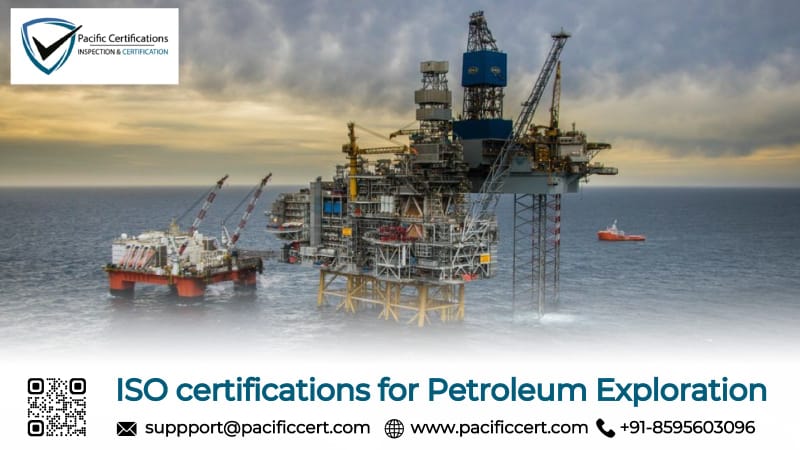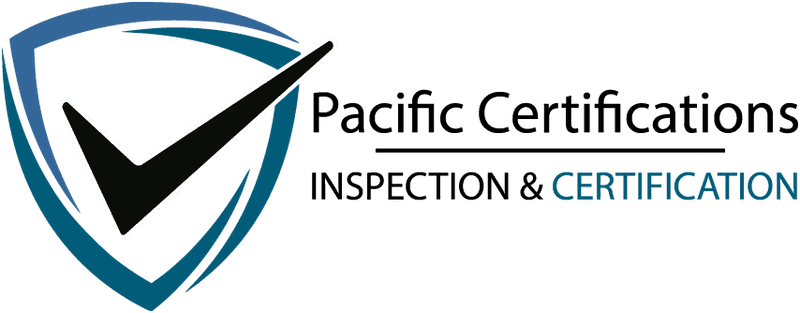ISO Certifications for Petroleum Exploration Sector, Requirements and Benefits

Introduction
The petroleum exploration sector operates in one of the most high-risk, capital-intensive, and highly regulated industrial environments in the world. Activities such as seismic surveys, exploratory drilling, offshore and onshore operations, data interpretation, and contractor coordination require strict control over quality, safety, environmental impact, information security, and operational continuity. Any failure in these areas can result in significant financial losses, environmental damage, regulatory penalties, and reputational harm.
ISO certifications have therefore become a critical framework for petroleum exploration companies to demonstrate disciplined management systems, regulatory compliance, risk control, and operational reliability. These certifications support safe exploration activities, responsible environmental stewardship, secure handling of geological data, and consistent operational performance across complex projects and remote locations.
For petroleum exploration organizations, ISO certifications are not merely a compliance exercise, it is a foundation for risk governance, operational resilience, and long-term sustainability.
Quick Summary
ISO certifications provide petroleum exploration companies with internationally recognized frameworks to manage quality through ISO 9001, environmental responsibility through ISO 14001, occupational health and safety through ISO 45001, information security through ISO/IEC 27001, energy performance through ISO 50001 , and business continuity through ISO 22301. These certifications help organizations reduce operational risks, improve regulatory compliance, strengthen stakeholder confidence, and support safe and efficient exploration activities.
For more information, contact us at [email protected].
What are ISO Certifications?
ISO certifications are formal recognitions that confirm an organization’s management systems comply with internationally accepted ISO standards. In the petroleum exploration sector, ISO certifications focus on how exploration activities are planned, executed, monitored, controlled, and improved, rather than evaluating the commercial success of exploration outcomes.
These standards apply to upstream oil and gas companies, petroleum exploration firms, seismic survey contractors, drilling service providers, offshore and onshore exploration operators, and technical service organizations supporting exploration activities.
Applicable ISO Standards for Petroleum Exploration Sector
Below are the most common ISO standards applicable to the petroleum exploration sector:
ISO 9001:2015 – Quality Management Systems
Ensures that petroleum exploration activities are carried out in a controlled, consistent, and documented manner, meeting contractual, regulatory, and technical requirements.
Read more: ISO 9001:2015
ISO 14001:2015 – Environmental Management Systems
Provides a structured framework to manage environmental aspects such as land disturbance, waste, emissions, spills, and ecological protection during exploration activities.
Read more: ISO 14001:2015
ISO 45001:2018 – Occupational Health and Safety Management Systems
Focuses on preventing work-related injuries, fatalities, and occupational illnesses in drilling sites, seismic operations, offshore platforms, and remote locations.
Read more: ISO 45001:2018
ISO/IEC 27001:2022 – Information Security Management Systems
Establishes controls to protect sensitive exploration data, seismic records, proprietary geological information, and digital systems.
Read more: ISO/IEC 27001
ISO 50001:2018 – Energy Management Systems
Supports systematic improvement of energy performance, fuel efficiency, and energy consumption in exploration operations.
Read more:ISO 50001
Click here to find out more applicable standards to your industry
What are the requirements of ISO certifications for Petroleum Exploration Sector?
Petroleum exploration organizations seeking ISO certification must establish and maintain documented policies, procedures, and records aligned with the selected ISO standards. Key requirements include the following:
ISO 9001:2015 – Quality Management Systems Requirements:
Define the scope of exploration activities and quality objectives
Maintain documented procedures for exploration planning and execution
Control contractors, suppliers, and outsourced technical services
Monitor performance and manage nonconformities
Implement continual improvement mechanisms
ISO 14001:2015 – Environmental Management Systems Requirements:
Establish an environmental policy addressing exploration-related impacts
Identify environmental aspects and assess associated risks
Ensure compliance with environmental laws and permits
Set environmental objectives and mitigation plans
Monitor environmental performance and incident response
ISO 45001:2018 – Occupational Health and Safety Management Systems Requirements:
Establish an OH&S policy suitable for high-risk operations
Identify hazards related to drilling, seismic work, and remote operations
Assess risks and implement preventive and protective controls
Ensure legal compliance and emergency preparedness
Promote worker consultation and participation
ISO/IEC 27001:2022 – Information Security Management Systems Requirements:
Establish an information security policy aligned with business objectives
Conduct risk assessments covering exploration data and IT systems
Implement access controls and data protection measures
Secure third-party and contractor data access
Define procedures for managing information security incidents
Tip: Certification readiness improves when ISO requirements are integrated into existing exploration workflows, contractor management systems, and regulatory compliance processes rather than treated as standalone documentation exercises.
Contact us today to start your certification journey!
What are the benefits of ISO Certifications for Petroleum Exploration?
Achieving an ISO certification offers numerous benefits that can significantly enhance the operations, reputation, and sustainability of petroleum exploration:
ISO standards help streamline processes, reducing waste and improving efficiency.
Ensuring consistent product and service quality enhances customer satisfaction and loyalty.
ISO 14001 promotes sustainable practices, reducing environmental impact and improving compliance with environmental regulations.
ISO 50001 helps optimize energy use, reducing costs and environmental footprint.
ISO 45001 enhances occupational health and safety, reducing workplace accidents and illnesses.
Implementing risk-based thinking and hazard identification improves risk management and reduces potential liabilities.
ISO certification provides international recognition of your commitment to quality, safety, and environmental management.
Demonstrating compliance with ISO standards can enhance your reputation and give you a competitive edge in the market.
ISO standards ensure compliance with applicable laws and regulations, reducing the risk of legal issues and fines.
Regular audits and reviews promote proactive management of regulatory changes and requirements.
ISO certification builds trust and credibility with customers, investors, and other stakeholders.
Clear and consistent processes improve communication with customers and stakeholders, fostering better relationships.
ISO certifications are expected to be a standard requirement for petroleum exploration organizations operating in regulated and high-risk environments, supported by the fact that ISO 9001 certifications already exceed 1.2 million globally, while ISO 14001 and ISO 45001 continue to show strong adoption growth in the oil and gas sector. Industry forecasts indicate that more than 70 percent of mid-to-large upstream oil and gas companies will maintain multi-standard ISO certifications by the end of the decade, driven by stricter environmental regulations, investor ESG expectations, and heightened safety accountability.
Procurement and joint-venture frameworks increasingly require ISO-certified management systems, with certified organizations demonstrating lower incident rates, improved regulatory audit outcomes, and stronger operational resilience compared to non-certified peers.
These trends position ISO certifications as a critical enabler of safe, compliant, and sustainable petroleum exploration operations worldwide.
How Pacific Certifications Can help?
Pacific Certifications, accredited by ABIS, provides independent third-party audit and certification services for petroleum exploration organizations seeking ISO certification. The role of Pacific Certifications is strictly limited to impartial auditing and certification in accordance with applicable ISO standards and accreditation requirements.
We support organizations through:
Certification audits conducted under ISO/IEC 17021 requirements
Transparent and internationally accepted certification processes
Multi-standard certification audits where applicable
Ongoing surveillance and recertification services
Contact us
If you need support with ISO certification for your Petroleum Exploration Business, please contact us at [email protected] or +91-8595603096.
Author: Ashish
Read More at: Blogs by Pacific Certifications

